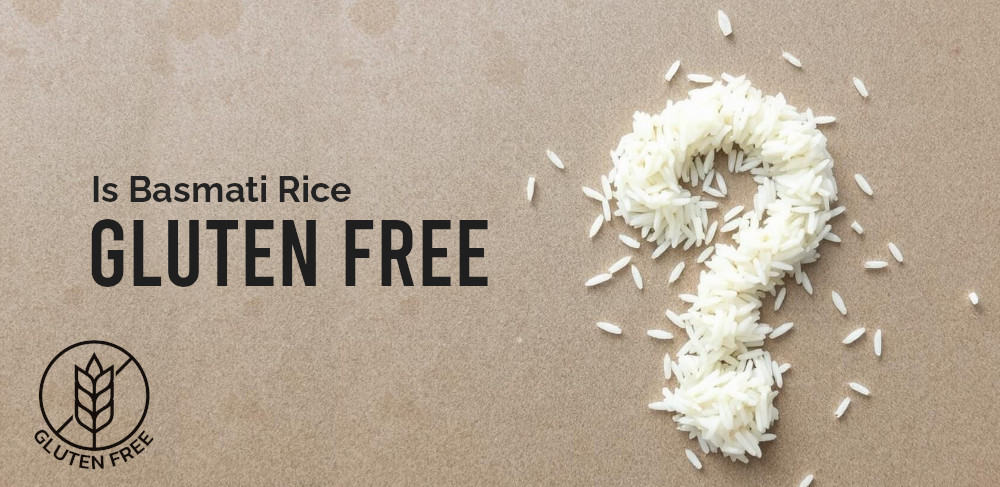If you’re someone with celiac disease or gluten sensitivity, you probably already know the importance of avoiding gluten in your diet. But what about basmati rice? Is this fragrant, long-grain rice variety safe to eat for those following a gluten-free diet? Let’s break it down and provide some clarity on this common question.

What is Gluten?
Gluten is a type of protein found in grains like wheat, barley, and rye. It’s what gives bread its chewy texture and helps dough rise. While gluten isn’t an issue for everyone, for those with celiac disease or gluten sensitivity, it can cause a range of uncomfortable and even harmful symptoms. These individuals need to strictly avoid gluten to protect their health.
Is Basmati Rice Gluten-Free?
The short answer: Yes, basmati rice is naturally gluten-free.
Basmati rice, like other varieties of rice, does not contain gluten. Rice is a naturally gluten-free grain, making it a safe and versatile choice for anyone who needs to avoid gluten in their diet. Whether you’re enjoying basmati rice as part of a meal or as the base of a gluten-free dish, you can rest assured that you’re in the clear.
However, one thing to be cautious about is cross-contamination. While basmati rice itself is gluten-free, it can sometimes come into contact with gluten during processing or packaging, especially if it’s processed in a facility that handles wheat or other gluten-containing grains. To be on the safe side, look for basmati rice that’s labeled “certified gluten-free” to avoid any potential cross-contamination.
Benefits of Basmati Rice
Beyond being gluten-free, basmati rice offers a variety of health benefits. It’s a great source of energy, thanks to its carbohydrate content, and it’s also low in fat. Basmati rice is rich in essential nutrients like B vitamins, and it has a low glycemic index, which means it releases energy more slowly and helps with blood sugar control.
One of the key reasons why basmati rice is so popular is its distinctive aroma and flavor. Its unique nutty taste and delicate fragrance make it a favorite in many cuisines, particularly in Indian and Middle Eastern dishes. From pilafs to curries, basmati rice adds a rich, flavorful dimension to any meal.
Basmati Rice in Gluten-Free Diets
For those on a gluten-free diet, basmati rice can be a staple. It’s versatile, easy to cook, and pairs well with countless ingredients. You can use it as a side dish, in salads, or as the base of hearty bowls. Here are a few easy ways to incorporate basmati rice into your gluten-free meals:
- Rice Bowls: Combine basmati rice with grilled vegetables, lean protein, and a flavorful sauce for a simple yet satisfying meal.
- Stir-fries: Basmati rice is an excellent base for gluten-free stir-fries. Just toss in your favorite vegetables and gluten-free soy sauce.
- Curries: Its long, fluffy grains make it a perfect match for rich, saucy curries.
Conclusion
To sum it all up: Basmati rice is naturally gluten-free, making it a safe and delicious option for those with celiac disease or gluten sensitivity. As long as you’re mindful of potential cross-contamination and choose certified gluten-free varieties, you can enjoy basmati rice without any worries.
Not only is basmati rice gluten-free, but it also offers a wealth of health benefits, from being rich in nutrients to having a low glycemic index. Its unique flavor and aroma make it a fantastic choice for many different dishes.
So whether you’re crafting a gluten-free stir-fry or serving a traditional curry, basmati rice is a wonderful grain to include in your meals.

